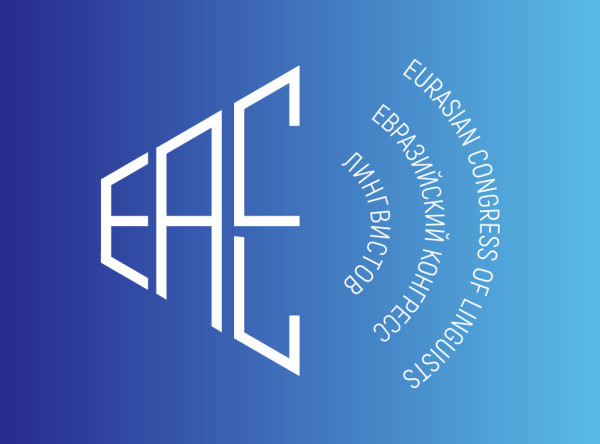Moscow to host the 1st Eurasian Congress of Linguists
The First Eurasian Congress of Linguists will take place from December 9-13, 2024, at the President Hotel in Moscow, marking the 300th anniversary of the Russian Academy of Sciences (RAS). Organized by the Institute of Linguistics RAS and supported by the Ministry of Science and Higher Education, the event will host over 500 scholars from 40+ countries. The Congress will feature plenary lectures, roundtable discussions, and poster sessions covering topics like endangered languages, neurolinguistics, AI in media, and the culture of the deaf community. Notable speakers include academics from Russia, India, the USA, Germany, China, and Finland. Sessions will be conducted in Russian and English, with interpretation available, and all events will be livestreamed on the official website.
On December 9, 2024, the grand opening of the First Eurasian Congress of Linguists will take place at 9:30 a.m. at the President Hotel (24 Bolshaya Yakimanka Street, Moscow). This major international academic event will bring together over 500 scientists from more than 40 countries.

Organized on the initiative of the Institute of Linguistics RAS with the support of the Ministry of Science and Higher Education of the Russian Federation, the Congress is one in a series of academic activities to commemorate the 300th anniversary of the Russian Academy of Sciences (RAS). The organizing Committee is chaired by Gennady Krasnikov, President of the RAS, and Valery Falkov, Minister of Science and Higher Education of the Russian Federation.
The Congress will highlight key areas in modern linguistics and the contributions of leading international research schools. The agenda includes plenary presentations, roundtable discussions, and poster sessions on topics such as:
- the International Decade of Indigenous Languages (2022–2032): can endangered languages be saved? Mid-term results from russian and international linguists;
- strengthening academic collaboration in today’s global landscape;
- the Russian Academy of Sciences: 300 years of history and contemporary challenges;
- artificial intelligence in mass media: friend or foe?
- the deaf community’s culture and Russian Sign Language;
- What can the world’s languages reveal about our past?
- the brain and language: neurolinguistics uncovering the secrets of speech;
- how does the brain read? and many others.
The plenary speakers will include — Alexey Gippius, academician of the RAS; Evgeny Golovko, corresponding member of the RAS; Ayesha Kidwai, professor at Jawaharlal Nehru University (New Delhi, India); Johanna Nichols, professor at the University of California, Berkeley (USA); Martin Haspelmath, Leipzig University (Germany); Alan Cienki, a leading expert in multimodal linguistics (Amsterdam, Netherlands); Bao An Chen, Peking University (China); Juha Janhunen, one of the foremost experts on Eurasian languages (Helsinki, Finland).
The Congress will be held in person, with English and Russian as the working languages (simultaneous interpretation will be provided). Plenary sessions on the first and last days of the congress will also be translated into Russian Sign Language and/or International Sign Language.
From December 9 to 13, the congress will feature eight plenary lectures, eighteen parallel sessions, over twenty roundtable discussions, and three large poster presentations. All events will be broadcast live on the official congress website: https://eacling.org/
Media Contact
Organization: First Eurasian Congress of Linguists
Contact Person: Karpovich
Website: https://eacling.org/en/2127-2/
Email: Send Email
Contact Number: +79646344349
City: Moscow
Country: Russia
Release Id: 26112420425
The post Moscow to host the 1st Eurasian Congress of Linguists appeared on King Newswire. It is provided by a third-party content provider. King Newswire makes no warranties or representations in connection with it.
Disclaimer: The views, suggestions, and opinions expressed here are the sole responsibility of the experts. No Research Raptor journalist was involved in the writing and production of this article.